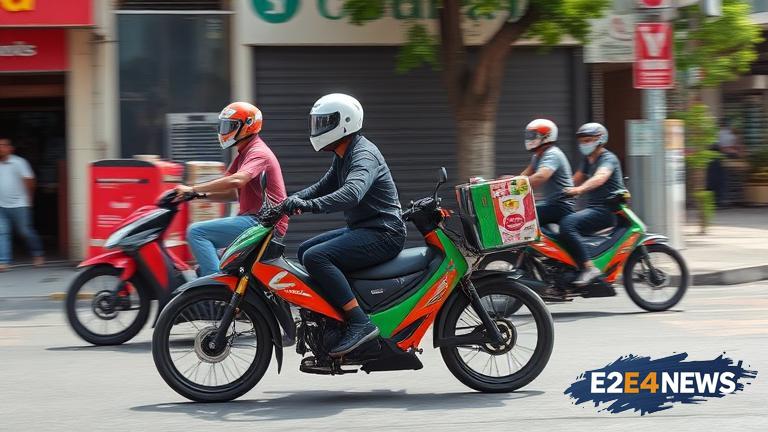In a landmark decision, the Cebu Regional Trial Court has ruled in favor of a group of delivery riders who filed a lawsuit against Foodpanda, alleging that the company had unfairly terminated their contracts and denied them benefits. The court’s decision is seen as a major victory for the riders, who have been fighting for their rights as workers in the gig economy. The lawsuit, which was filed in August 2025, claimed that Foodpanda had breached its contractual obligations to the riders and had failed to provide them with the necessary benefits and protections. The riders argued that they were not just independent contractors, but rather employees who were entitled to the same rights and benefits as other workers. The court’s decision is expected to have far-reaching implications for the gig economy in the Philippines, where many workers are classified as independent contractors and are denied benefits and protections. The ruling is also seen as a major blow to Foodpanda, which has faced criticism for its treatment of delivery riders in the past. The company has been accused of exploiting its riders, who are often forced to work long hours for low pay and without benefits. The lawsuit is just one of several that have been filed against Foodpanda in recent years, with riders in other countries also seeking to challenge the company’s business model. The Cebu Regional Trial Court’s decision is a significant step forward for workers’ rights in the Philippines, and is likely to inspire other riders to take action against the company. The riders’ victory is also a testament to the power of collective action, with the group of riders working together to challenge Foodpanda’s practices. The lawsuit has sparked a wider debate about the gig economy and the need for greater protections for workers. Many experts have argued that the gig economy is inherently exploitative, with companies like Foodpanda using loopholes in labor laws to deny workers their rights. The Cebu Regional Trial Court’s decision is a major step towards addressing these issues, and is likely to have a significant impact on the gig economy in the Philippines. The ruling is also expected to have implications for other companies that operate in the gig economy, with many likely to face similar challenges in the future. As the gig economy continues to grow, it is likely that we will see more lawsuits and challenges to companies like Foodpanda. The Cebu delivery riders’ victory is a significant milestone in the fight for workers’ rights, and is likely to inspire other workers to take action. The lawsuit has also highlighted the need for greater regulation of the gig economy, with many calling for stricter laws to protect workers. The Philippine government has been criticized for its failure to regulate the gig economy, with many arguing that the current laws are inadequate. The Cebu Regional Trial Court’s decision is a major step towards addressing these issues, and is likely to put pressure on the government to take action. The ruling is also expected to have implications for the wider labor movement, with many seeing it as a significant victory for workers’ rights. The Cebu delivery riders’ victory is a testament to the power of collective action, and is likely to inspire other workers to take action against exploitative companies. The lawsuit has sparked a wider debate about the gig economy and the need for greater protections for workers, and is likely to have a significant impact on the industry in the Philippines. The Cebu Regional Trial Court’s decision is a major step towards creating a more just and equitable society, and is likely to have far-reaching implications for workers’ rights in the Philippines.





